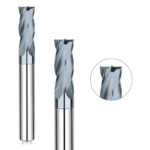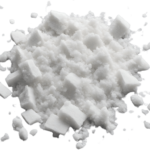Introduction
In today’s fast-paced society, the notion of rehabilitation is frequently forgotten. We are always urged to keep going, work harder and move quicker. But what happens when we approach our limits? Enter the notion of “recuperbate.” Recuperbate refers to the practice of actively recuperating both physically and psychologically to restore energy and equilibrium. This practice may lead to a better, more sustainable living.
What is Recuperbate?
The word “recuperbate” combines “recuperate” with the meaning of “reinvigorate.” While recovering often refers to physical healing, it extends beyond that, embracing mental and emotional rehabilitation as well. It’s the comprehensive approach to rehabilitation that many people ignore yet require in their everyday lives.
Why Recuperbate Matters
Our bodies and brains are not built to work at full speed all the time. Without sufficient recuperation, we risk burnout, disease, and even long-term mental health disorders like anxiety or depression. It stresses a balanced existence, where rest and recuperation are equally as crucial as hard labor.
The Physical Side of Recuperbate
When we strain our bodies to the limit, whether via exercise, job, or stress, we need time to restore and recover. It emphasizes actions like sleep, stretching, and diet that help in physical recuperation. Without this, muscles stay painful, immune systems weaken, and weariness sets in.
The Role of Sleep in Recuperbate
One of the most critical parts of physical healing is sleep. When we sleep, our bodies heal tissues, generate critical hormones, and solidify memories. It’s during deep sleep that our muscles recover from regular wear and tear, making adequate sleep crucial for recuperbate.
Mental and Emotional Recovery
Equally crucial to physical rehabilitation is mental and emotional restoration. The incessant stresses of life might leave us feeling weary and uninspired. It means spending time for mindfulness, relaxation, and activities that provide pleasure and calm.
Mindfulness and Meditation
Practices like mindfulness and meditation are crucial components of recuperbate. By concentrating on the present moment, we may minimize tension and anxiety, fostering mental clarity and emotional equilibrium.
Journaling for Emotional Health
Writing down ideas and feelings may be a helpful approach to process emotions. Journaling as part of it helps cleanse the mind, uncover patterns of stress, and reflect on personal progress.
The Role of Nutrition in Recuperbate
A vital element of its is nourishing the body with the correct nutrition. A balanced diet loaded with vitamins, minerals, and antioxidants may hasten physical recovery and promote mental health.
Foods That Aid Recuperbate
Certain meals are thought to assist in the recuperation process. Leafy greens, lean proteins, and omega-3 fatty acids are just a few examples of nutrients that encourage it. They help decrease inflammation, restore muscles, and increase cognitive function.
Exercise and Recuperbate: Finding Balance
While exercise is crucial for a healthy lifestyle, it’s necessary to balance activity with relaxation. It supports a conscious attitude to exercise, ensuring that individuals do not overstrain their bodies. Active recovery, such as yoga or mild walking, may be an effective approach to recuperbate after intensive exercises.
How Stress Impacts Recuperbate
Stress is one of the main challenges to successful it. Chronic stress may impair sleep, promote inflammation, and damage the immune system. To properly its necessary to control stress with activities like deep breathing, time in nature, or even simple hobbies that provide delight.
Incorporating Recuperbate Into Daily Life
It’s tempting to imagine that recuperbate is something that occurs just on vacation or after a hard work week. However, genuine It should be a daily habit. This might involve taking small breaks during the day, allocating time for hobbies or just enjoying periods of quiet thought.
Setting Boundaries
It properly, creating limits is crucial. This can include shutting off work emails after a particular hour, saying no to additional obligations, or finding time for things that refresh you.
The Science Behind Recuperbate
Studies have demonstrated that rest and recuperation are crucial to both mental and physical health. From reducing cortisol levels (the stress hormone) to raising serotonin and dopamine (the happy chemicals), It has proven advantages on the brain and body.
Overcoming Guilt Around Recuperbate
In a culture that values work above all else, it’s easy to feel guilty about taking time to it. However, by reframing recovery as a necessary aspect of long-term success, we may transcend these feelings of shame and perceive recuperbate as a type of self-care.
Recuperbate and Longevity
Taking the effort to its frequently might potentially increase your longevity. Studies demonstrate that stress reduction, regular sleep and right nutrition—all critical components of recuperbate—can increase overall health and lifespan.
Conclusion
It is about more than simply relaxing. It’s about building a balanced lifestyle that encompasses physical, mental, and emotional rehabilitation. By adding recuperbate into everyday activities, people may enhance their health, decrease stress, and live more happy lives.
FAQs
1.What is the difference between recuperbate and ordinary recovery?
It adopts a holistic approach, concentrating on physical, mental, and emotional healing, while ordinary rehabilitation generally concentrates just on the physical element.
2.How can I start practicing recuperbate?
Begin by establishing regular time for relaxation, mindfulness techniques, and fueling your body with nutritious meals.
3.Is recuperbate just for persons with high-stress jobs?
No, It is helpful for everyone, regardless of their stress levels or career.
4.Can recuperbate enhance mental health?
Yes, by adding mindfulness, meditation and emotional contemplation, it may promote mental well-being.
5.How long does it take to experience the effects of recuperbate?
The advantages of its may be noticed almost immediately, but constant practice leads to long-term gains in health and well-being.







